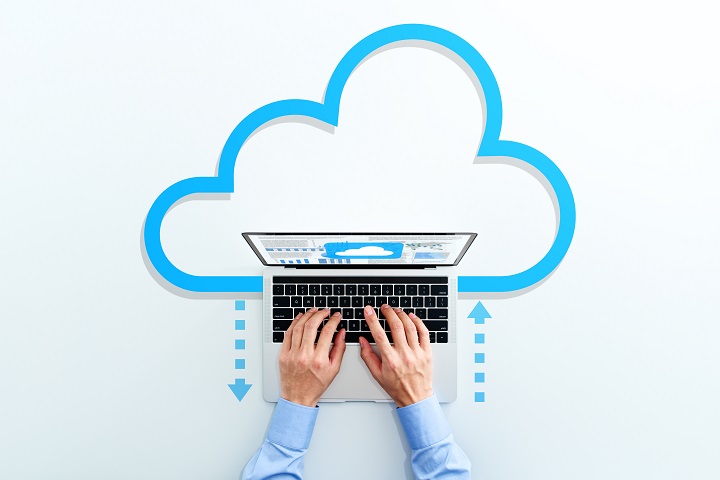Internet
Why Web Scraping Is a Double-Edged Sword for Businesses?
To attract more traffic and maximize profits, business owners consider using different tools, some of which are for web scraping.

In recent years, companies of all sizes have recognized the value of making an online presence. Even small businesses are seeing the potential gains of the online market, with about 71% of them owning a website. To attract more traffic and maximize profits, business owners consider using different tools, some of which are for web scraping.
Essentially, web scraping is the automated collection of data from the internet. In many ways, it can be a blessing to a business, but it can also be a risk. And this article will explain why.
Table of Contents
1. What Is Web Scraping?
Web scraping is data mining from online sites that simulates human behavior by using software to retrieve all available information, typically in HTTP format, from a target web page. The scraper can then copy a portion or all of a website’s content to another destination.
It enables the indexing and organizing of large data sets, allowing behavioral, statistical, and qualitative studies to be performed. For this reason, more and more firms employ scraping tools and bots for their initiatives. Consequently, about 80% of annual e-commerce profitability is affected by web scraping.
The “scraped” data can be applied to many promising practices. This includes availability and transparency. However, it is also prone to be exploited for malicious purposes, such as information abuse and intellectual property theft.
While much of this isn’t illegal, web scraping does fall into a gray area where law and morality are debatable. Nevertheless, it is essential to understand the pros and cons of this double-sided coin.

2. How It Can Be Beneficial
For website owners and developers, web scraping tools save them a lot of resources. That is why well-known cloud providers, such as Amazon AWS, still provide free APIs for secure web scraping. In the right hands, it can help in many ways.
a. Automation
When working with advanced tools like bots, this is the primary benefit. It has simplified data extraction to just a few clicks, and it’s a real-life-saver as it completes the retrieval and processing of large amounts of data in a short amount of time.
You’ll be able to develop a better picture of your market and your competitors’ activity by downloading, cleaning, and analyzing large volumes of data at a fast rate.
b. Accuracy
Aside from being quick, scraping services are also precise, and simple data extraction errors can lead to severe issues later. Therefore, the accuracy of any form of data extraction is critical, and this is especially true for websites that deal with any other type of financial data.
Most humans find repetitive tasks boring, and this is perhaps why mistakes are still made even with the most straightforward assignments. Hence, many leave these kinds of jobs to robots.
c. Fewer Expenses
Manual data extraction is a costly task that demands a big team and a budget. But with automatic scraping tools, the costs can be significantly cut. Because maintenance cost is low and data is processed from the target website as a whole, data mining is now more affordable than ever.
Once the fundamental data extraction process is up and running, you can crawl the entire domain rather than just one or a few pages. This means that the one-time investment in having a scraper can pay off handsomely.
d. Flexibility
Application Programming Interfaces (API) are not hard-coded solutions for web scraping. As a result, they’re highly adaptable, open, and interoperable with other scripts.
All that is required is to design a scraper for a single significant work and then restructure it to fit a variety of tasks by making just minor modifications to the core. You can build up a scraper, an app integration, a monitoring actor, and a deduplication actor within one system.
3. Why It Is Also a Threat
Even if you use web scraping for good reasons, others may not. Web criminals and business rivals can steal your information and use it for various malicious activities using this technology. It is vital to know what risks you may encounter as a business.

a. Phishing Attacks
Compared to hacking into an account, scraping is not as intrusive. However, it can open up the possibility of phishing attacks. Hackers can find out the names of superiors, active initiatives, and partner organizations.
This data can craft clear messages and trick people into giving what the hackers want. They can even steal most of a site’s content and take over its SEO ranking in the search results.
b. Password Cracking
Even if the password isn’t explicitly disclosed, hackers can use it to crack credentials and single bypass factor, or even multifactor, authentication mechanisms using web scraping.
Keep in mind that your employees construct passwords based on their interests, lifestyles, and other characteristics. All of these may be found on social media and other parts of the web. A skilled hacker can use this information to guess passwords, making a cyber-attack easier.
c. Price Scraping
A scraper can access the pricing information to offer a cheaper deal in their shop to boost sales. In this scheme, scraper bots are launched from a botnet to search the databases of business competition.
Web scraping allows competitors to get real-time pricing and promotion alerts, as well as product information and other plans. This can impact your revenue, website traffic, and user experience, among several others.
d. Spamming
Contact scraping is a sort of web scraping that entails searching for and obtaining contact information from a website. Bad bots collect email addresses and phone numbers with the intent of spamming new people.
Nowadays, push marketing strategies like this aren’t effective because people don’t trust them. So even if you don’t practice this type of scraping, but someone steals the contact details of your site’s visitors and spam, your reputation is still in danger.
4. Conclusion
Web scraping can do wonders. But if misused, it can tarnish a brand considerably. Understanding the intrusive nature of this threat not only raises awareness about this expanding danger. It also helps website owners to take steps to protect their proprietary information and their users’ privacy.
Games
Parimatch starts cooperation with the AFA in Asia
This partnership allows the AFA to expand its international presence and, together with Parimatch, participate in all sports technology events held in Asia.

The global gaming platform Parimatch has announced a new exclusive partnership with the Argentine Football Association (AFA), becoming the organization’s fifth regional sponsor. This partnership allows the AFA to expand its international presence and, together with Parimatch, participate in all sports technology events held in Asia.
Expanding its horizons, the Argentine Football Association is actively entering new strategic markets, involving more than 55 commercial partners. In addition, the association is improving its digital content strategy, including social media in five languages, to help attract new audiences.
The partnership with Parimatch will provide users with the opportunity to participate in various official events, receive autographed t-shirts of the players of the national team of Argentina, and enjoy unique moments thanks to this collaboration.
AFA President Claudio Tapia said: “We express our gratitude to Parimatch, a leading company in the gaming industry, for joining the Argentine football family as a regional sponsor of our national team in the Asian region.”
Tapia stressed that the AFA continues to take active steps to expand its presence in strategic markets and forge alliances with leading companies. This agreement allows the association to work actively in Asia and strengthens its position in the world of football. “We sincerely welcome Parimatch as our regional sponsor,” he added.
The AFA’s Commercial and Marketing Director, Leandro Petersen, stated: “We are delighted to announce a new regional sponsorship in the Asian region between the AFA and Parimatch. This partnership with a market leader like Parimatch will strengthen our position in the international arena and help expand the fan base of the Argentine national team in Asia.”
The press service of Parimatch also expressed satisfaction with the cooperation, underscoring: “We are pleased to work with the Argentine Football Association as its regional sponsor in Asia. This agreement marks an important milestone for Parimatch as we enhance our commitment to growing football in Asia and providing an exceptional playing experience for fans. Our partnership with the AFA allows us to expand our brands and actively engage with football fans in Asia.”
Parimatch reaffirms its commitment to supporting football in Asia and is ready to provide fans with unforgettable experiences as a regional sponsor of the Argentine Football Association.
Through strategic partnerships with leading football organizations such as the AFA, Parimatch continues to promote the development of sports and popularize football culture in Asia, bringing beloved teams closer to their fans.
Parimatch also plays a key role in promoting sports culture in the region. Through its partnership with the AFA, Parimatch provides its users with exclusive access to events and products related to Argentine football. This not only strengthens the Parimatch brand, but also enhances the commitment to sports in Asia.
The collaboration between Parimatch and the AFA demonstrates how strategic alliances can influence the development of the sports industry. Parimatch is constantly looking for new opportunities for development and innovation, and this partnership is another step in that direction. Parimatch users are looking forward to new opportunities that will open up thanks to this collaboration.
-

 Instagram4 years ago
Instagram4 years agoBuy IG likes and buy organic Instagram followers: where to buy them and how?
-

 Instagram4 years ago
Instagram4 years ago100% Genuine Instagram Followers & Likes with Guaranteed Tool
-

 Business5 years ago
Business5 years ago7 Must Have Digital Marketing Tools For Your Small Businesses
-

 Instagram4 years ago
Instagram4 years agoInstagram Followers And Likes – Online Social Media Platform
















